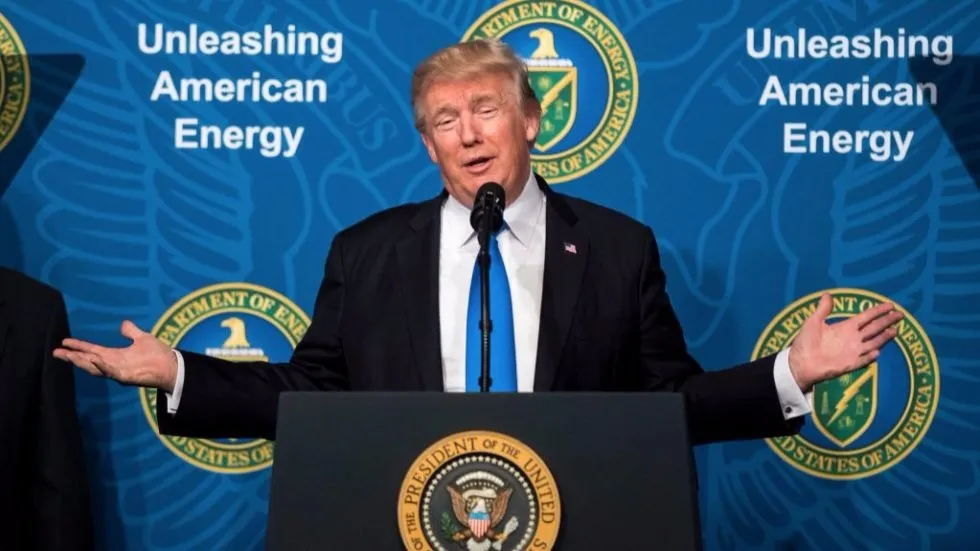Administrative Law
Government Hires Shouldn’t Have to Take a MAGA Essay Test
Schedule F was bad, But Trump’s latest move is even worse.
The Trump Administration has adopted new hiring procedures that will impose ideological litmus tests in federal hiring. Job applicants will be graded on essays about their allegiance to “America’s founding principles” and their commitment to implementing Trump’s executive orders. These new essay questions have little to do with the jobs of most government and employees and more to do with ideological conformity. They violate both the Civil Service statute and the First Amendment.
CONTINUE READINGEnvironmental Rollbacks: Will the Trump Administration Overplay Its Hand?
The odds are good that Trump agencies will go too far out on a limb.
The Trump Administration’s tendency to rely on bold legal arguments rather than detailed technical ones is a disadvantage in court. Courts defer to agencies on factual matters, especially those that involve technical expertise. Now that Chevron has been overruled, however, legal arguments by agencies don’t get the same deference. Thus, the chances of a judicial reversal are higher when the agency relies on purely legal grounds.
CONTINUE READINGTrump Goes Nuclear
Four new executive orders try to launch a nuclear renaissance.
Diluting safety and environmental reviews is also likely to lead to a lot of litigation, which will slow nuclear licensing to a crawl. In addition, the industry knows that what one President can do by executive order, the next President can undo. So it could be risky to make investments in facilities that will be around for many decades, based on what could be an evanescent presidential policy. And the public will have good reason to fear that public safety won’t be a priority.
CONTINUE READINGWhat Happened to EPA Enforcement?
Enforcement efforts peaked long ago and have been in long-term decline. Trump will accelerate that.
There has been a long-term decline in EPA enforcement since the late Bush Administration. The numbers raise three questions: What’s behind the long-term trend? Why has pollution generally continued to decline despite weaker enforcement? And how bad will things be under Trump II? As to the third question, Trump has already made it clear that we can expect environmental enforcement to crash and burn in the next four years.
CONTINUE READINGExecutive Disorders
One after another, Trump has let loose destructive blasts at the environment to promote fossil fuels, mining, and logging.
We all know that Trump has issued a slew of executive orders since taking the oath of office. We also know that many of these are aimed to promoting fossil fuels, mining, and logging at the expense of the environment, while disfavoring renewable energy. Still, it’s impressive when you put the list together to see the full onslaught.
CONTINUE READINGNo, DOE, You Can’t Roll Back Product Efficiency Standards
Congress wanted greater energy efficiency over time and banned rollbacks.
The Department of Energy is proposing to rescind key energy efficiency requirements. It is beyond ironic that it is attempting to do so at a time when the President has proclaimed an energy emergency. Trump says the grid is struggling desperately to meet surging power demand. That’s a strange time to eliminate regulations that are saving energy. DOE’s action is also illegal, because the law in question has a provision prohibiting rollbacks. Congress wanted efficiency standards to get tougher over time and included an anti-rollback provision to make sure of that.
CONTINUE READINGEPA Steps Through the Looking Glass
You can’t accuse EPA of hiding the ball. It has announced its new mission: promoting fossil fuels.
You might have thought the prime mission of the Environmental Protection Agency was protecting the environment. Lee Zeldin, the Trump appointee running EPA, has a different idea: “The EPA is going to aggressively pursue an agenda powering the Great American Comeback… that’s our purpose, and it’s what will keep us up at night.”
CONTINUE READINGPrecedent, the Trump Administration, and Endangered Species
A new Trump Administration initiative misinterprets the overruling of Chevron
The Trump Administration’s effort to strip away protections under the Endangered Species Act that had previously been upheld by the Supreme Court. The Administration seems to think they’re entitled to ignore that earlier decision because it was decided under the Chevron test and Chevron has since been overruled. They’re wrong. If it wishes to change the existing interpretation, the agency must give a reasoned argument for doing so that discusses the relevant policy issues, including reliance and the impact of its decision on endangered species.
CONTINUE READINGMAGA vs NOAA, Executive Orders, and Growing IRA Support
The Drain is a new weekly roundup of climate and environmental news from Legal Planet.
Trump wants to “Make Weather a Mystery Again.” The news that started leaking last Friday is that the Trump administration wants to break up the National Oceanic and Atmospheric Administration and essentially end NOAA’s climate work by abolishing its primary research office and forcing the agency to instead help boost U.S. fossil fuel production, according …
Continue reading “MAGA vs NOAA, Executive Orders, and Growing IRA Support”
CONTINUE READINGSenate Parliamentarian Confirms that California Waivers Are Not Subject to the Congressional Review Act
Will Republicans honor her determination?
As I have previously written, the Trump Administration is attempting an end run around the administrative process it is supposed to follow if it intends to revoke the waiver California received for three important programs to cut air pollutants from cars and trucks. You can find the details about this end run around — using …
CONTINUE READING













